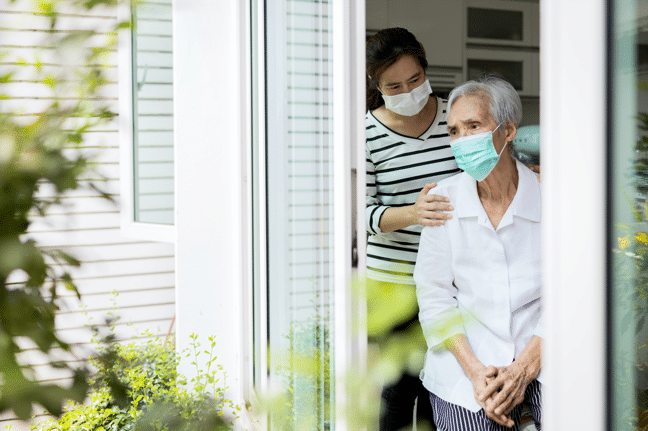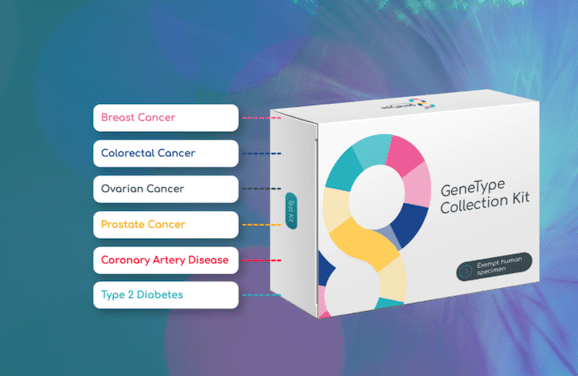April is Stress Awareness Month.
We’d like to take a moment to discuss stress and how it can impact your health.
Stress can impact your health in a variety of ways (as you’re probably already very aware!).Short term stress that we all feel at some point during the day is different than long-term stress. An example of short-term stress may come from driving in bumper-to-bumper traffic with a screaming baby in the car. It is a manageable stress because you know it will be resolved as soon as you reach your destination. It is only temporary. While it may increase your heart rate and blood pressure in the short term, this reaction subsides when you exit that environment/situation.

Long-term stress can actually cause physical harm to your body.
An example of long-term or chronic stress may be caused by caring for an ageing loved one, struggling through a period of job uncertainty, or living life through a pandemic! As a reaction to stress, your body produces hormones and growth factors that are meant to help your body cope with the stress, but they can also weaken your immune system. This lowered immune response can make us vulnerable to a wide range of illnesses including increase digestive problems1, depression2, neurological decline3, viral infection4, heart disease5, and cancer6,7. There is even evidence that stress can decrease our body’s response to vaccination8.
One potential cause of stress could be that you are anxious about your health or risk for disease.
For many adults, understanding the risk and knowing that you are doing everything humanly possible to reduce your risk is a stress reliever in itself. If you are worried about your risk of cancer, heart disease, or even COVID-19, first, understand your risk. This might mean talking to your doctor about your risk or looking at other resources that might add value to your own understanding of your personal risk factors for the disease. Next, together with your doctor, you can develop a screening plan that is appropriate for your risk level. And finally, you can discuss all of the risk reducing options that may be available to you—these options may include medications, behavioural, or lifestyle changes. Most of us experience some level of daily stress, whether mild or severe, short-term or chronic. Below are a few simple, yet effective, ways to help reduce your stress.

- Exercise! It can lower stress hormone levels, and increase “happy” hormones, like endorphins.Reduce caffeine intake. This stimulant can increase your stress levels—but everyone has a different level of tolerance, so knowing your body will help you adjust.
- Social support. Even for the most introverted, having a social support network from a friend, family member, or even a pet can reduce stress levels.
- Laugh. Laughter, like exercise also releases endorphins. What did the bald man say when he got a comb for his birthday? ‘Thanks, I’ll never part with it!’
- Give a hug. Easier said than done if you are still social distancing, but physical contact can lower stress hormones like cortisol.
If one or more of these ideas can help you lower your stress level, even a little bit, you’re likely to get a boost and feel more relaxed. This past year living through the COVID-19 pandemic has placed extra stress on us all in myriad ways. Be kind to your mind and body and take some time to de-stress.\
References
- Mayer EA; The neurobiology of stress and gastrointestinal disease
Gut 2000;47:861-869 - Kessler R. The effect of stressful life events on depression. Annual Review of Psychology. 1997;48:191–214.
- Justice NJ. The relationship between stress and Alzheimer's disease. Neurobiol Stress. 2018;8:127-133. Published 2018 Apr 21. doi:10.1016/j.ynstr.2018.04.002
- Cohen S, Tyrrell DAJ, Smith AP. Psychological stress in humans and susceptibility to the common cold. New Engl J Med. 1991;325:606–612.
- Rosengren A, Hawken S, Ounpu S, Silwa K, Zubaid M, Akmahemeed WA, et al. Association of psychosocial risk factors with risk of myocardial
infarction in 11,119 cases and 13, 648 control from 52 countries (INTERHEART study): case control study. The Lancet. 2004;364:953–63. - Stress and Cancer: An Overview by Mark Doolittle, accessed Apr 8, 2021 https://med.stanford.edu/survivingcancer/cancer-and-stress/stress-
and-cancer.html - Sood AK, Lutgendorf SK. Stress influences on anoikis. Cancer Prev Res (Phila). 2011;4(4):481-485. doi:10.1158/1940-6207.CAPR-10-0358
- Kiecolt-Glaser JK, Glaser R, Gravenstein S, Malarkey WB, Sheridan J. Chronic stress alters the immune response to influenza virus vaccine in
older adults. Proc Natl Acad Sci U S A. 1996 Apr 2;93(7):3043-7.
Related Articles

It’s not always easy to know what questions to ask your Doctor. Here are some breast cancer risk questions...
It’s not always easy to know what questions to ask your Doctor. Here are some breast cancer risk questions...
Under the fluorescent lights of a doctor’s office, it’s not always easy to know what questions to ask. Here are some breast cancer risk questions...




